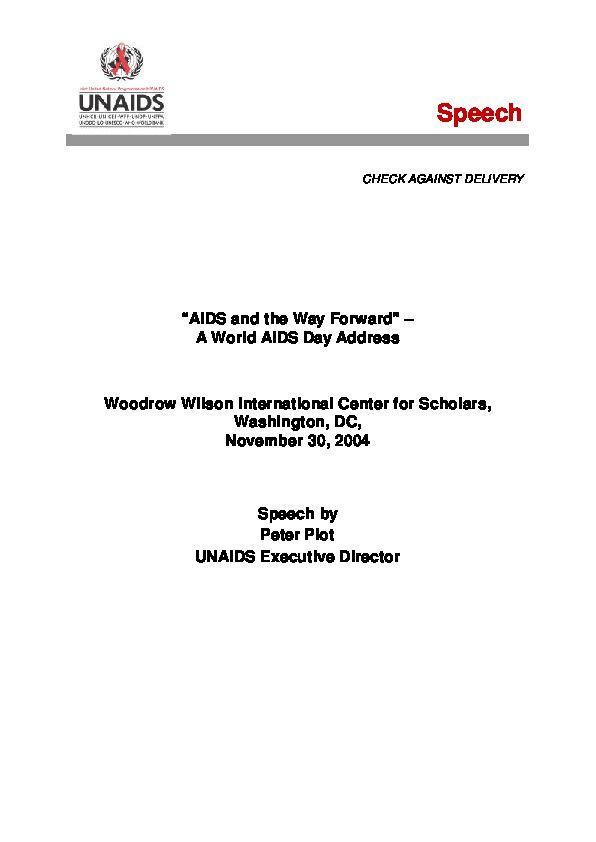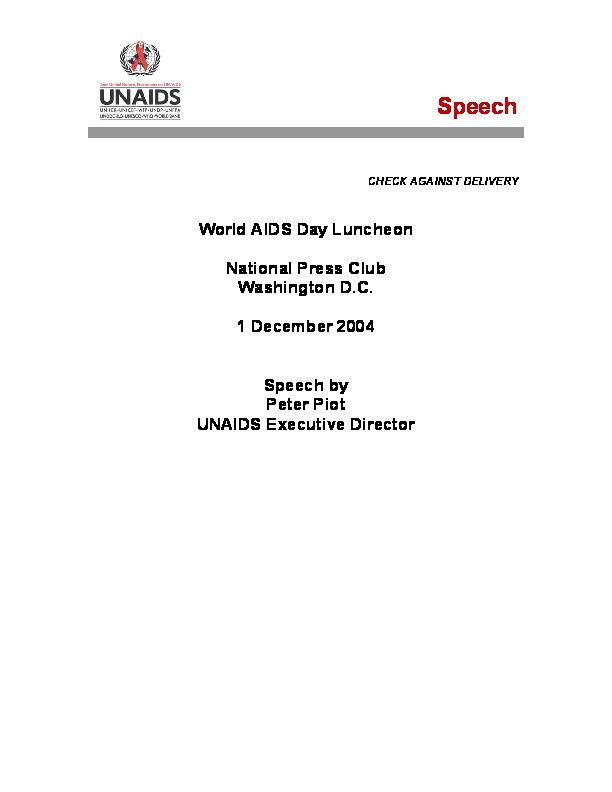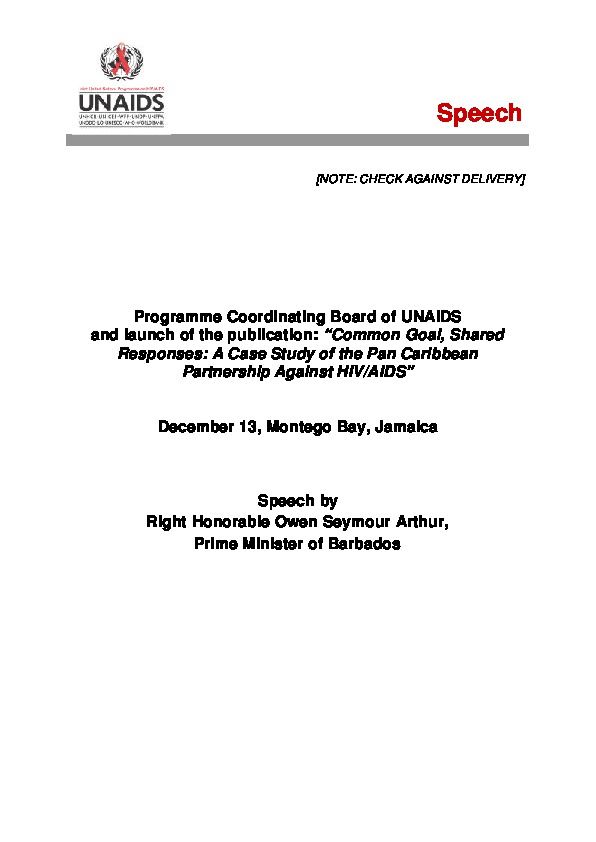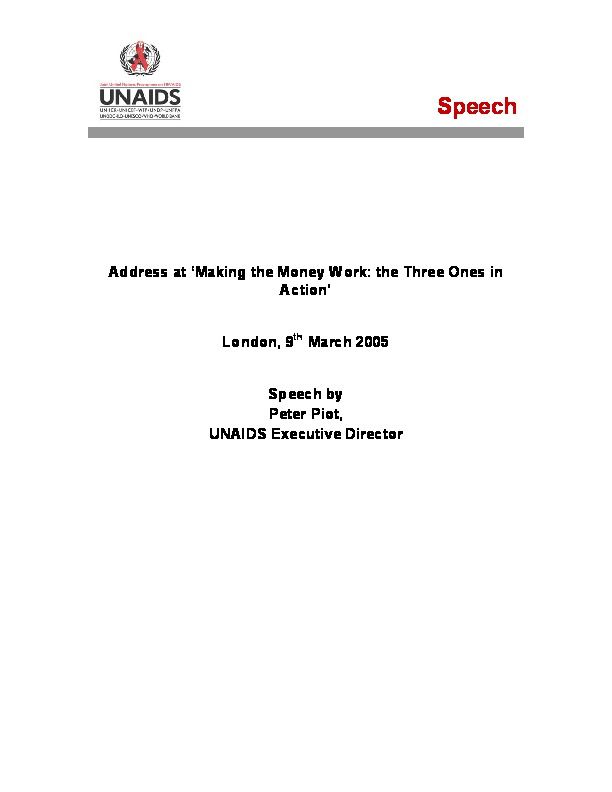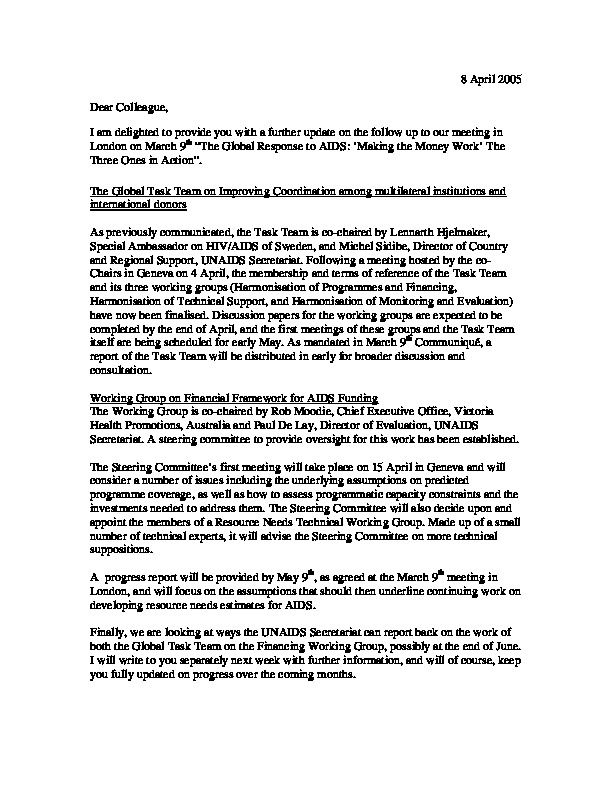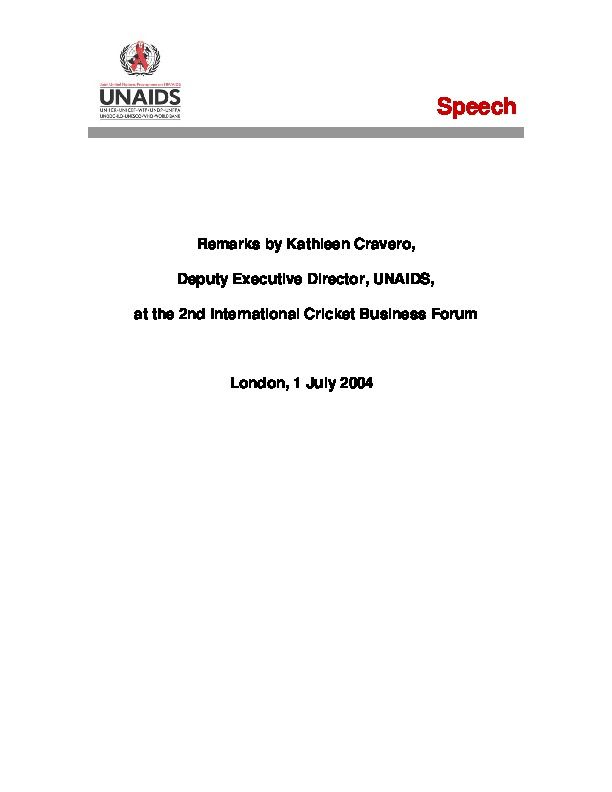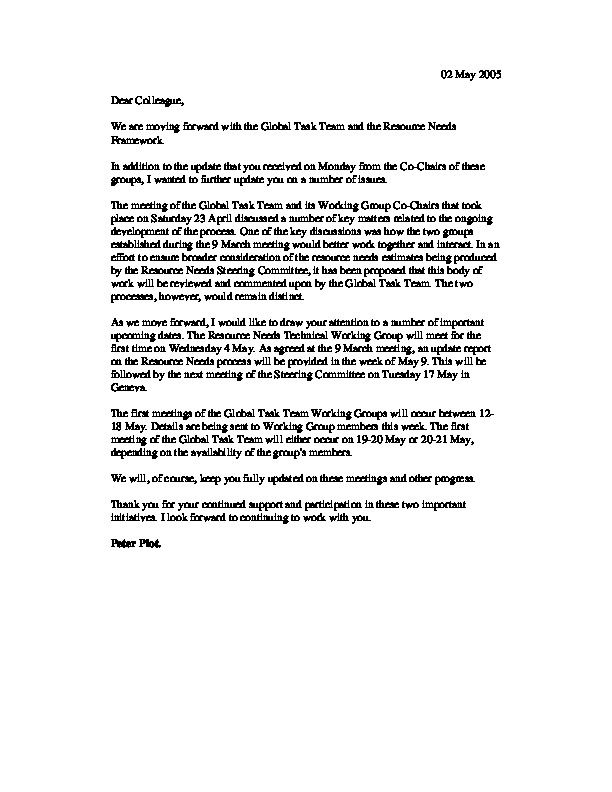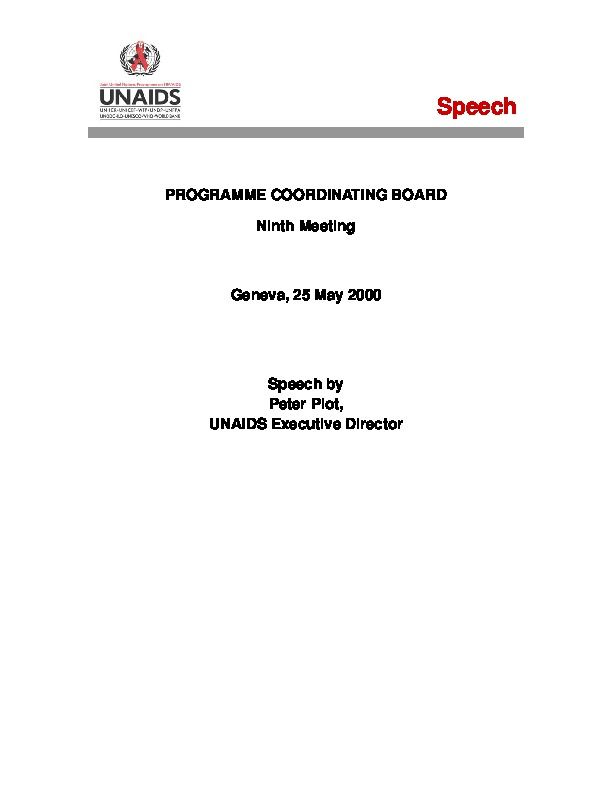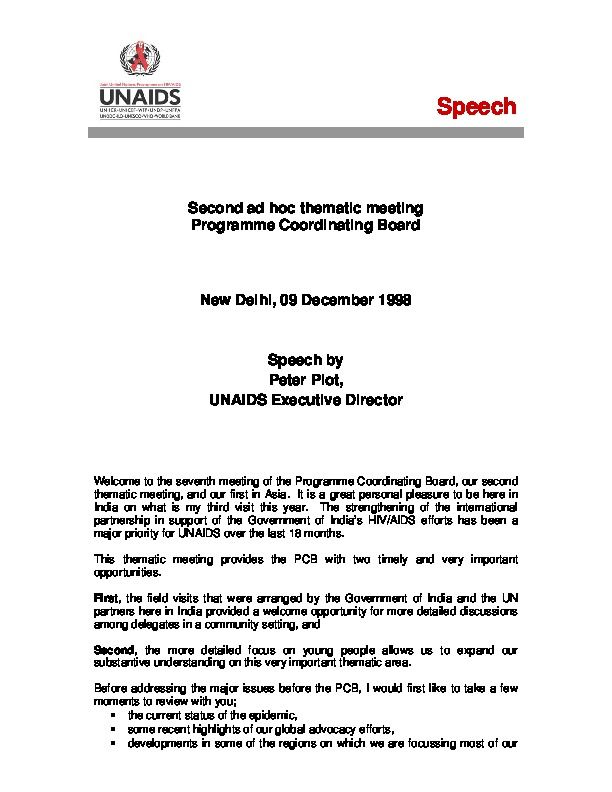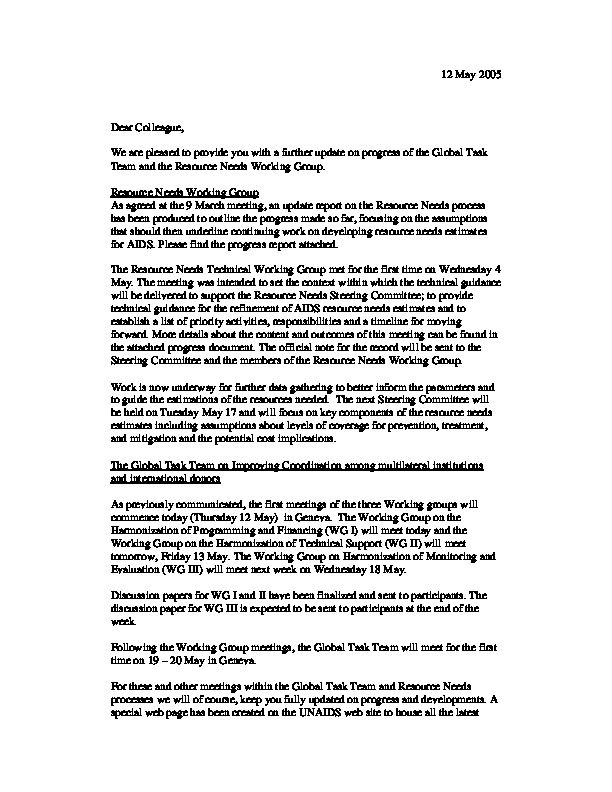Documents
Progress update from UNAIDS Executive Director Peter Piot
08 avril 2005
Documents
Speech to the 9th Meeting of the UNAIDS Programme Coordinating Board, Geneva, 25 May 2000, by Peter Piot, UNAIDS Executive Director
12 mai 2005
I would like to emphasize that the impact of the epidemic is now starkly visible in the worst affected countries. Impacts on productivity, including agriculture, lead to knock-on effects in households. In the private sector AIDS undermines development by killing skilled and unskilled labour alike, increasing expenditures and reducing revenue.
Documents
Speech to the 7th Meeting of the UNAIDS Programme Coordinating Board, 2nd ad hoc thematic meeting, New Delhi, 09 December 1998, by Peter Piot, UNAIDS Executive Director
12 mai 2005
Welcome to the seventh meeting of the Programme Coordinating Board, our second thematic meeting, and our first in Asia. It is a great personal pleasure to be here in India on what is my third visit this year. The strengthening of the international partnership in support of the Government of India’s HIV/AIDS efforts has been a major priority for UNAIDS over the last 18 months.

